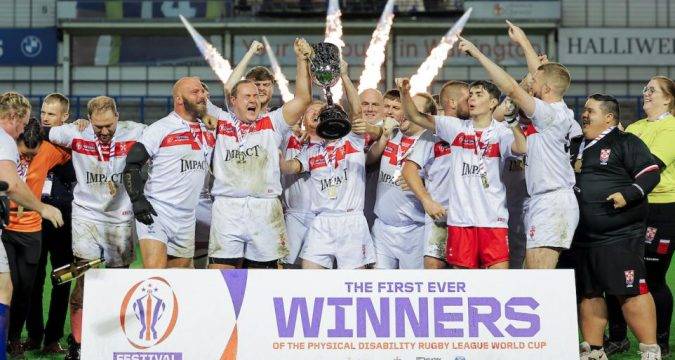 Don’t let the legacy of England’s first World Cup win go cold “It has the power to change lives”, says Physical Disability Rugby League England International.
As the action kicked off, you’d be excused for thinking there were only three Rugby League World Cups happening this year.
The Men’s, Women’s, and Wheelchair competitions
Don’t let the legacy of England’s first World Cup win go cold “It has the power to change lives”, says Physical Disability Rugby League England International.
As the action kicked off, you’d be excused for thinking there were only three Rugby League World Cups happening this year.
The Men’s, Women’s, and Wheelchair competitions Don’t let the legacy of England’s first World Cup win go cold – “It has the power to change lives”, says Physical Disability Rugby League England International
 Don’t let the legacy of England’s first World Cup win go cold “It has the power to change lives”, says Physical Disability Rugby League England International.
As the action kicked off, you’d be excused for thinking there were only three Rugby League World Cups happening this year.
The Men’s, Women’s, and Wheelchair competitions
Don’t let the legacy of England’s first World Cup win go cold “It has the power to change lives”, says Physical Disability Rugby League England International.
As the action kicked off, you’d be excused for thinking there were only three Rugby League World Cups happening this year.
The Men’s, Women’s, and Wheelchair competitions 